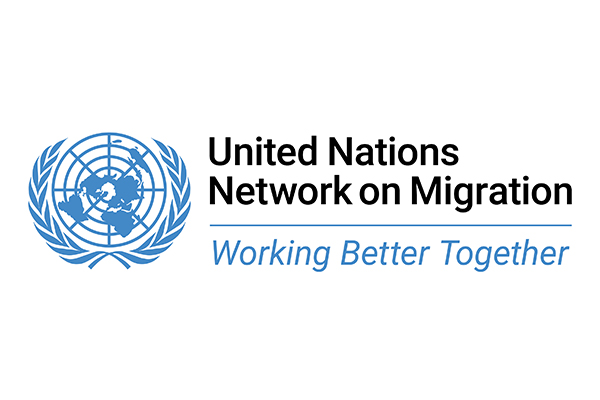Statements

Statement by the United Nations Network on Migration High-Level Political Forum
Excellencies, distinguished delegates, ladies and gentlemen,
It is an honour to address you as the Coordinator of the UN Network on Migration, established by the Secretary-General last year. By bringing together the entities of the UN system working on migration, the Network aims to provide a coherent, system-wide response to the implementation of the Global Compact for Safe, Orderly and Regular Migration.
The 2030 Agenda for Sustainable Development and the Global Compact for Safe, Orderly and Regular Migration are inextricably linked as landmark international cooperation frameworks which recognize migrants as integral members of our societies and contributors to sustainable development.
The 2030 Agenda laid the groundwork for the Global Compact on Migration. It identified migration as a core development consideration, marking the first time that migration was explicitly integrated into the global development agenda. By framing migration as an engine for sustainable development, the 2030 Agenda has helped rebut the long-held view of migration as a failure of development.
SDG target 10.7 calls on governments to facilitate orderly, safe, regular and responsible migration as a means to reduce inequalities within and among countries. While 10.7 is often considered the central migration reference, the 2030 Agenda as a whole has significant relevance for migrants and migration. For example, target 8.8 on migrant workers; target 10.c on remittances and SDG 16 on trafficking in persons and legal identity illustrate the many ways in which sustainable development and migration intersect.
Decades of evidence have shown us that migration is overwhelmingly positive for migrants and communities both of origin and destination. Migrants bring with them new ideas and entrepreneurship; they promote progress and build bridges amongst communities.
When poorly managed, however, migration generates challenges. This includes direct threats to the safety, well-being and rights of migrants, including those posed by migrant smugglers and human traffickers who seek to exploit situations of vulnerability. These challenges also contribute to the perception of migration not as a collective gain, but as something to be wary of. Pernicious narratives around migration flourish best in climates of uncertainty.
Excellencies,
The SDGs can only be achieved if migrants and migration are included in national development strategies. We applaud those countries that have included migration in their voluntary national reviews.
Similarly, Member States should develop national implementation plans to demonstrate their commitments in the Global Compact, placing the human rights of all individuals – migrants and their host communities – at the center of their design, implementation and review.
The UN Network on Migration stands ready to support Member States and all partners in ensuring coherence amongst the pursuit of the 2030 Agenda, their national implementation plans for the Global Compact on Migration and in the design of Sustainable Development Cooperation Frameworks.
This week, the Network launched a multi-partner Start-up Fund for Safe, Orderly and Regular Migration, called for in the Global Compact. Through this, we aim to unlock crucial funding needed to support the implementation of the Global Compact. We call upon our partners to contribute generously to the Fund to help states in realizing their national migration priorities, supported by a coherent UN system and drawing on the expertise of all stakeholders.
Empowerment, inclusion and equality – the issues framing this year’s HLPF – are as relevant to migrants as to anyone else. Indeed, migrants need to be included – with conviction – if we are to be true to the call to leave no-one behind. Let us take this opportunity to harvest the immense potential of migration that benefits so many migrants and communities, and also to make migration work for all.
Thank you.
*References to Kosovo shall be understood to be in the context of United Nations Security Council resolution 1244 (1999).
Newsletter
Subscribe to our newsletter.